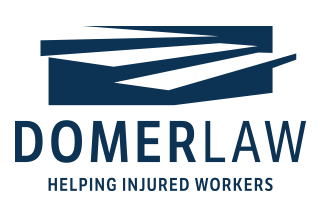
Injured workers now have greater access to vocational retraining benefits. The new law changes, while providing a number of employer-friendlyprovisions, also contained pro-worker enactments-especially for those injured workers who need to go back to school.
A major public policy goal of the worker’s compensation system is to restore an injured worker’s pre-injury earning capacity, meaning get the worker back to the wages they made before getting hurt. To facilitate that goal, if an injured worker has permanent limitations that do not allow them to return to their injury job, the worker can pursue vocational retraining benefits. Under Wisconsin law, these benefits are meant to compensate a worker during the entire schooling period. The insurance carrier is responsible for weekly maintenance benefits (at 2/3 of the employee’s average weekly earnings) during every week the worker is in school, as well as tuition, book, travel and meal expenses during school. Many retraining programs are for approximately two-year associate degree programs, but, depending on the worker’s pre-injury wages, the paid-for program could involve a bachelor’s degree or beyond.
In a victory for workers, the 2016 new law allows for prospective vocational retraining benefits. Historically, when a vocational retraining claim was “ripe” for presentation at a hearing was uncertain. Some administrative law Judges indicated that a retraining program only became viable and ripe for hearing when the worker actually was attending classes. Unfortunately, many injured workers-who cannot return to their former employment and have no other source of income-do not have the financial ability to go to school on their own. As such, these workers could not enroll in or begin school unless the workers’ compensation insurance carrier was ordered to pay for prospective schooling.
The legislature clarified this issue, and effective March 2, 2016, Judges have the authority to issue prospective orders for vocational retraining benefits (Wis. Stat. § 102.18(1)(b)2., as amended by 2015 Wis. Act 180). Specifically, a carrier can be ordered to pay for a future course of instruction, along with the corresponding vocational retraining benefits/expenses, for either a DVR-sponsored or private rehabilitation counselor program.
Another pro-worker provision of the 2016 law is that injured workers are now allowed to work up to 24 hours per week while undergoing vocational retraining without those earned wages reducing their weekly worker’s compensation maintenance benefits (the 2/3 wages). Previous law required the reduction in work comp benefits for this part-time-thereby creating a disincentive to work. The new law (effective March 2, 2016) acknowledges the practical reality for a worker returning to school. The injured worker now can engage in part-time school and part-time work, maintaining the worker’s connection to the labor market.
Vocational retraining benefits can be difficult for an injured worker to pursue, but the new 2016 law makes it easier.


